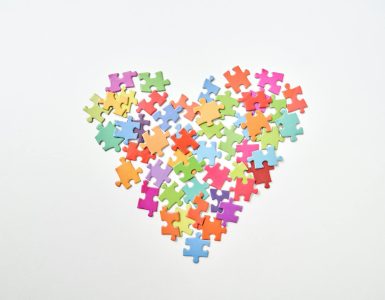We like to think we’re rational beings, making conscious choices based on logic and reason. But the truth is, our brains are sneaky little buggers, constantly pulling strings behind the scenes, influencing our thoughts, feelings, and actions in ways we’re often completely unaware of. This isn’t to say we’re puppets; rather, understanding these hidden patterns empowers us to make more informed decisions and navigate the complexities of human interaction with greater self-awareness.
The Power of Priming: Your Brain’s Secret Setup
Ever noticed how seeing a certain word or image can subtly influence your subsequent behavior? That’s priming in action. It’s like your brain’s getting a pre-show briefing, setting the stage for how you’ll react to the main event. For example, studies have shown that exposure to words associated with elderly people (like “wrinkled” or “Florida”) can actually slow down participants’ walking speed! The mere mention of aging primed their minds to associate with the stereotype of slowness.
This isn’t just some lab curiosity. Think about clever marketing strategies. A car commercial showing a sleek, powerful vehicle might prime you to associate luxury and success with that particular brand, even subtly impacting your purchasing decisions later on. It’s all about manipulating your unconscious biases, leveraging the hidden power of suggestion.
The Framing Effect: How Words Shape Reality
The way information is presented – the “framing” – drastically alters our perception. Consider this: Would you rather have a surgery with a 90% survival rate or a 10% mortality rate? Both convey the same information, yet the first sounds far more appealing. This is because our brains respond more strongly to positive framing, even when the underlying facts are identical. Politicians and marketers are masters of this, carefully crafting their messages to influence how we perceive their products or policies.
A classic experiment illustrates this beautifully. Participants were presented with two scenarios: one framed as a potential gain (“saving lives”), the other as a potential loss (“losing lives”). Even though the decisions involved the same number of lives, people were far more risk-averse when the situation was framed as a potential loss.
Cognitive Biases: The Mental Shortcuts That Lead Us Astray
Our brains are amazing, but they’re also lazy. To navigate the world efficiently, we rely on mental shortcuts called cognitive biases. While sometimes helpful, these shortcuts can also blind us to crucial information and lead to flawed judgments.
Confirmation bias, for instance, is the tendency to seek out and favor information that confirms our existing beliefs, while ignoring contradictory evidence. This is why conspiracy theories thrive – people selectively focus on information supporting their pre-conceived notions, while dismissing anything that challenges them. Similarly, the availability heuristic makes us overestimate the likelihood of events that are easily recalled, often due to their vividness or recent occurrence. The Unexpected You: Unmasking the Everyday Psychology of Human Action
The Bystander Effect: Why We Don’t Always Help
Imagine seeing someone in need of help. Logic suggests you’d intervene, right? Not always. The bystander effect, demonstrated tragically in the Kitty Genovese case, highlights how the presence of others can drastically reduce individual responsibility. The diffusion of responsibility means each person assumes someone else will take action, leading to inaction by all.
In experiments simulating emergencies, researchers found that individuals were far more likely to help when alone than when surrounded by others. The presence of others creates a sense of ambiguity, making it harder to interpret the situation as an emergency and potentially hindering our impulse to intervene. It’s a stark reminder that our social context profoundly impacts our behavior.
The Power of Conformity: Following the Crowd
Humans are social animals. We crave belonging and acceptance, and this innate desire can lead us to conform to group norms, even when we know deep down that something’s not quite right. Solomon Asch’s famous conformity experiments demonstrated this powerfully. Participants were asked to judge the length of lines, a simple task; however, when put in a room with confederates (actors) who deliberately gave incorrect answers, a significant number of participants conformed, giving the wrong answers themselves.
Conformity isn’t always negative; it’s a fundamental aspect of social cohesion. It allows for smooth social interactions and shared understanding. However, understanding its power helps us critically evaluate our own actions and resist undue pressure to conform to harmful or illogical group behaviors. It emphasizes the importance of maintaining individual critical thinking even within a social context.
The Halo Effect: First Impressions Matter (A Lot)
Our brains love making quick judgments. The halo effect demonstrates how our initial impression of someone – whether positive or negative – can color our subsequent perceptions of them. For example, a beautiful person might be judged as more intelligent or competent, even if there’s no objective evidence to support this assumption. Similarly, a negative first impression can taint our judgment, even though a person might possess positive qualities.
This highlights the importance of being mindful of first impressions, both in terms of receiving them and making them. Consciously striving to avoid making hasty judgments and seeking out further information can mitigate the biases introduced by the halo effect.
Conclusion: Embracing the Unexpected
Understanding the hidden mechanisms driving our thoughts, feelings, and actions doesn’t diminish our agency; it empowers us. By acknowledging these patterns – priming, framing, cognitive biases, conformity, and the myriad other influences – we can begin to make more conscious and informed choices. We’re not puppets, but learning to navigate the hidden currents of human behavior helps us become more effective masters of our own lives. The Mind's Secret Recipe: Unpacking the Everyday Weirdness of Us

























Add comment